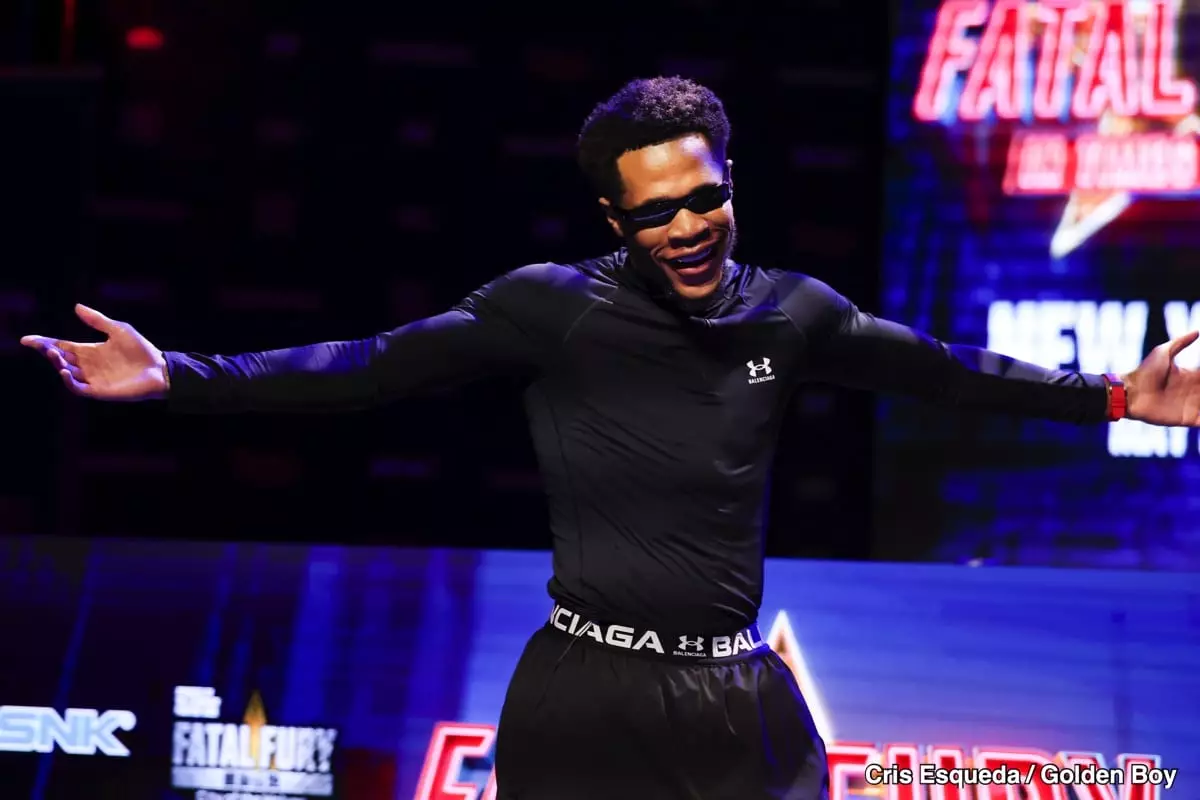In the high-stakes world of professional boxing, emotions run deep, especially when family is involved. Bill Haney, father and trainer of the renowned Devin Haney, recently found himself embroiled in a heated exchange with Todd Grisham, an influential figure in the boxing media landscape. This confrontation exemplifies not only the pressures that come with being associated with high-profile athletes but also brings to light the responsibility of sports media to present balanced narratives. At its core, this incident raises essential questions about the lines drawn between scrutiny and respect in the fiercely competitive realm of combat sports.
Grisham’s Questioning Tactics
During a press conference leading up to Devin Haney’s match against Jose Ramirez, Grisham’s questions aimed at assessing the young champion’s vulnerability, particularly following a tough loss to Ryan Garcia. He probed Ramirez by questioning, “Are you going to be able to test that chin?” In doing so, Grisham appeared to prioritize sensationalism over sportsmanship, a trend that can often detract from a boxer’s achievements. Devin Haney’s rebuttal was revealing; he retorted, “I don’t understand what you mean by ‘Chin.’ I got up every single time against somebody on PEDs.” His frustration captures the weight placed on athletes to constantly defend their legacy, especially after facing adversity.
A question about one’s “chin” might resonate with hardcore boxing fans familiar with the sport’s intricate mix of talent and risk. However, framing one’s narrative through the lens of doubt—especially after a loss—can create undue negativity that impacts public perception. Grisham’s approach, though arguably a reflection of his role as a press member seeking the story, undermines the dedication and talent that being a two-division world champion entails.
The Father’s Perspective
Bill Haney’s emotional response to Grisham reveals a deep paternal instinct and unwavering loyalty. His reference to Devin as the “youngest undisputed champion” underscores pride not just in his son’s current accolades, but in the journey that made him a champion. To Bill, remarks that fail to highlight Devin’s success feel not just like slighting his son’s character but also dismissing the hard work and sacrifice invested into the sport.
Bill’s critique of Grisham’s professionalism resonates with the broader issue of media responsibility. While probing questions are essential in sports journalism, there lies an ethical boundary where it’s vital to weigh the impact of words and the narrative they create. The collective herculean efforts and discipline to reach championship status should not be overshadowed by detrimental queries that lean towards sensationalism. Grisham’s failure to adequately praise Devin is indicative of a missed opportunity to portray a star athlete in a more constructive light.
The Role of Media inAthletic Narratives
In a sport defined by colossal sacrifices, the role of media is significant in shaping an athlete’s narrative. Grisham’s comments calling into question Devin’s “heart” were undoubtedly an attempt to stir intrigue, but they also expose a troubling trend where sensationalism outweighs merit. Boxing, perhaps more than any other sport, thrives on stories—of triumph, adversity, and resilience. Questions that undermine these narratives can have lasting repercussions.
Sports media ought to foster narratives that inspire rather than diminish. This serves not only the athletes but the fans who invest in their journeys. Devin Haney’s status as an undisputed champion deserves recognition for his tenacity and skill, irrespective of setbacks. Moreover, framing competitive encounters—like the GOP duel he faces with Ramirez—within a context that respects the legacy of the game invigorates audience engagement.
Confrontation and Validation
The post-conference confrontation reflects broader dynamics within sports media. Bill Haney’s candid rebuke of Grisham highlights the frustrations many in the boxing community may feel towards journalists whose questions may seem to prioritize drama over sportsmanship. The compelling nature of Bill’s defense emphasizes a protective barrier around his son’s legacy, underscoring the intense scrutiny that elite athletes face daily.
In this clash, we witness the interplay of pride, vulnerability, and the uncompromising nature of sport. The volatility of media interactions mirrors the highs and lows experienced within the boxing ring. As the drama unfolds, both Devin and Bill Haney continue their narrative, not just as champion and father but as representatives of a sport that exists in a complex interplay between respect and rivalry, perseverance and pressure. Every word must carry weight, and in revealing the human experience behind the champ’s journey, we find a deeper connection to the game itself.


Leave a Reply